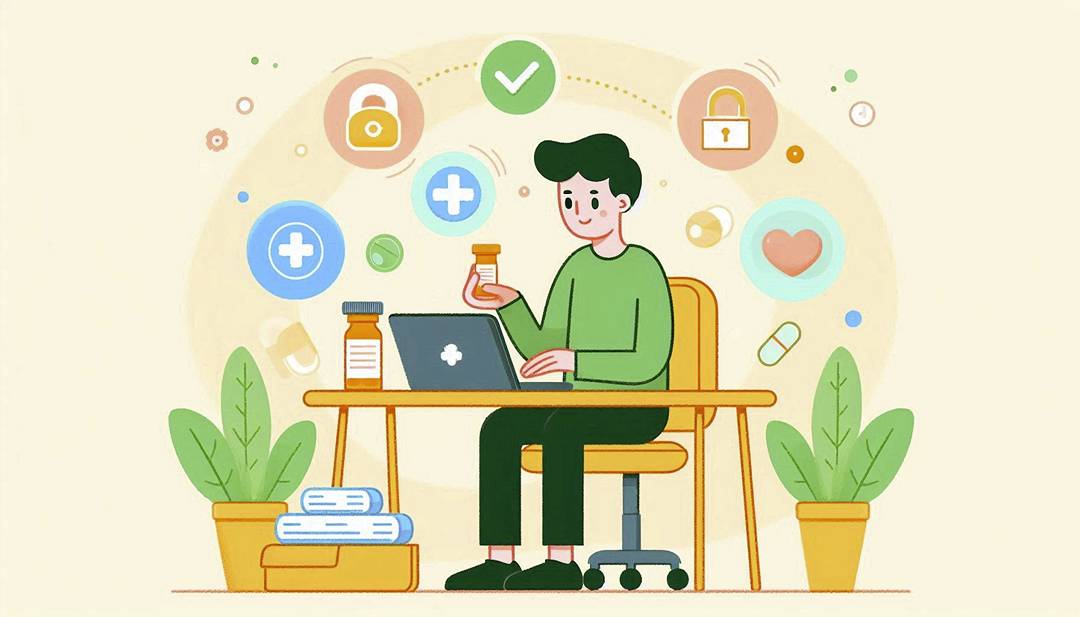
Common Missteps When Managing New Medications
Managing new medications has its downsides. There’s a lot to keep track of, from timing doses to understanding potential side effects.
Without the right guidance, it’s easy to miss important details. Many people unintentionally make mistakes that could lead to bigger health concerns.
To help you out in this scenario, here are a few of the most common missteps when managing new prescriptions.
Forgetting to Follow a Consistent Medication Schedule
Missing doses or taking medications at inconsistent times weakens their effectiveness. Medications often work best when taken at regular intervals, aligning with your body’s natural rhythms.
Life gets busy, and it’s easy to lose track. But even a simple phone alarm can help build consistency. Pairing medications with daily habits, like brushing your teeth or eating meals, creates reliable triggers.
It’s also essential to check if certain medicines need empty stomachs or specific timing adjustments for the best results. Small efforts make sticking to schedules easier while improving overall treatment outcomes.
Obtaining Prescriptions From Unreliable Sources
Using unverified suppliers for medications poses serious health risks. Counterfeit drugs often lack the right ingredients or contain harmful substances, putting your safety at risk.
Trust matters when managing new prescriptions. Always consult licensed healthcare providers who can prescribe medications suited to your needs. For example, you should only use reputable suppliers of Mounjaro weight loss medication to ensure authenticity and effectiveness.
Research pharmacies thoroughly and avoid deals that seem too good to be true. Prioritizing trusted sources guarantees quality control while accelerating your health journey.
Ignoring Potential Side Effects Without Consulting a Doctor
Every medication has potential side effects, but skipping discussions with your doctor leaves you unprepared. Symptoms like dizziness or stomach upset might seem minor but could signal larger issues.
It’s important to report anything unusual promptly. Your doctor can suggest adjustments, alternative treatments, or ways to minimize discomfort while staying on track.
Don’t rely solely on package inserts for information. While helpful, they can’t account for personal health factors like other medications or conditions you may have.
Storing Medications Improperly and Risking Effectiveness
Where you store medications directly impacts their potency. Heat, humidity, or direct sunlight can degrade active ingredients, making them less effective.
Bathrooms may seem convenient, but they often expose medicines to moisture. Instead, use a cool, dry space like a cabinet away from sinks and stoves.
Some prescriptions require refrigeration, so check labels carefully for storage instructions. Keep medicines in their original packaging to protect them from environmental factors.
Overlooking the Dangers of Drug Interactions
Mixing medications without understanding interactions can lead to harmful side effects or reduced effectiveness. Even common supplements, like vitamins or herbal remedies, may interfere with prescriptions.
Always share a complete list of what you’re taking with your doctor or pharmacist. This includes over-the-counter drugs and dietary changes that might impact absorption.
Pay attention to labels for warnings about alcohol, certain foods, or timing restrictions. For example, some antibiotics react poorly with dairy products. Also consider that people who are on five or more medications are 30% more likely to encounter slip-ups, so extra vigilance is required.
Misinterpreting Prescription Labels or Instructions
Rushing through prescription labels often leads to mistakes. Dosage instructions, such as “take with food” or “once daily,” aren’t always self-explanatory and can be misunderstood.
For instance, does “twice daily” mean every 12 hours or during waking hours? Small misunderstandings like these could affect the medication's effectiveness.
If anything seems unclear, ask your pharmacist for clarification. They’re a reliable resource to help you avoid errors and ensure safe usage.
Misjudging When to Refill Prescriptions on Time
Running out of medication disrupts your treatment and could lead to serious setbacks. Many people underestimate how long a prescription will last or forget to reorder until it’s too late.
Mark refill dates on your calendar, or use automatic reminders offered by many pharmacies. Some medications may require advanced approval for refills, so plan ahead if your doctor needs to authorize them.
Moreover, keeping a small buffer, like ordering when you have one week’s supply left, ensures you’re always covered.
Final Thoughts
Managing new medications requires attention to detail, but small steps make a big difference. Avoiding common mistakes ensures treatments work as intended while protecting your health. Stay informed, organized, and proactive in communication with healthcare providers for the best outcomes. Simple habits create safer and more effective medication routines.

Comments (0)